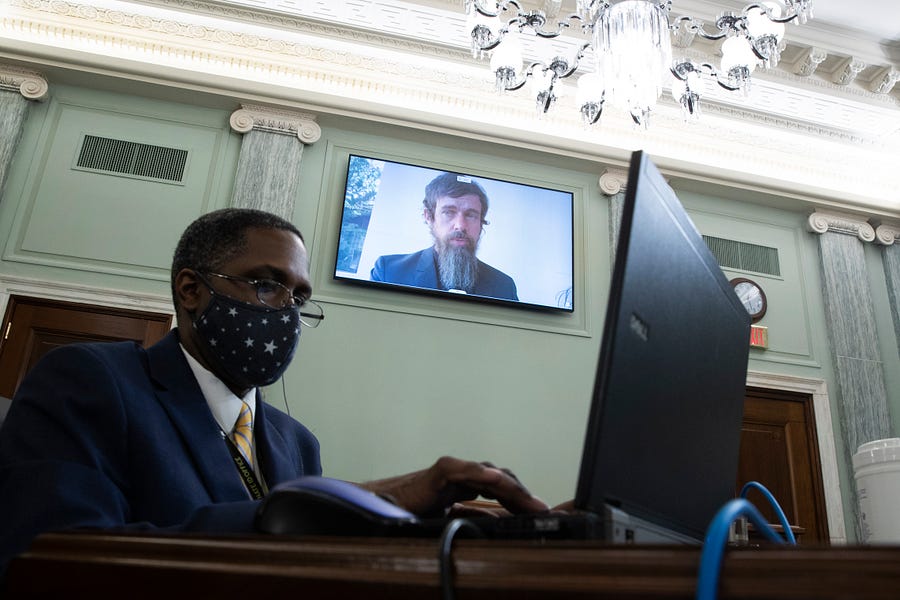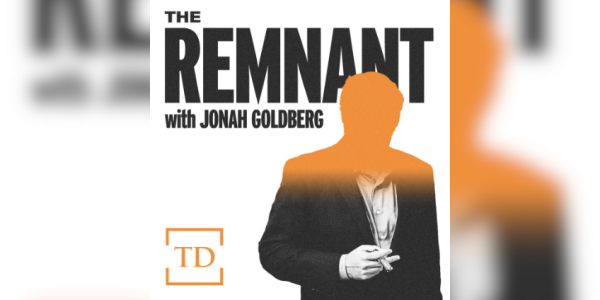Happy Thursday! Remember Saturday? Not too long ago, right? That’s the length of time between now and Election Day. (Incidentally, it’s also the length of time you have left to sign up for our post-election virtual event!)
Quick Hits: Today’s Top Stories
-
The U.S. Supreme Court will not hear the Pennsylvania GOP’s appeal of the Pennsylvania Supreme Court’s Oct. 19 decision allowing ballots to be counted if they are received up to three days after Nov. 3, even if there is no postmark or the postmark is illegible. Justice Samuel Alito penned a separate statement suggesting that the Supreme Court could rule on the case after the election. The Supreme Court also declined to block an extension of North Carolina’s ballot return deadline. Justice Amy Coney Barret did not partake in either decision because “she has not had time to fully review the parties’ filings.”
-
The Center for Responsive Politics projects that this election cycle—including races in the House, Senate and the White House—will cost a record $14 billion, which would double the previous record set in 2016.
-
Germany and France announced new lockdown measures on Wednesday to combat the resurgence of COVID-19 cases and deaths. France’s one-month national lockdown will begin Friday, and will require people to stay indoors while nonessential businesses—including bars and restaurants—remain closed. Germany will require bars, gyms, concert halls, restaurants, and theaters to close down for one month beginning on Monday.
-
With less than a week until Election Day, 73.3 million Americans have already voted through in-person early voting and by mail-in ballots. Early voting numbers have now reached 53 percent of the total 2016 voter turnout, indicating record high voter participation in 2020.
-
A Wall Street Journal investigation revealed a key source for ex-British spy Christopher Steele’s dossier investigating connections between the Trump campaign and Russia: Olga Galkina, a disgruntled employee of global tech firm XBT Holding SA, who hoped to implicate her former employer by feeding Steele information.
-
Regeneron Pharmaceuticals announced positive clinical trial data related to its antibody cocktail therapy for COVID-19. Patients who received the therapy prior to hospitalization were 57 percent less likely to need medical care later. Regulators are evaluating whether to grant the treatment an emergency use authorization. Regeneron said earlier this month, however, that it currently only has about 50,000 doses of the treatment available.
-
The United States confirmed 81,062 new cases of COVID-19 yesterday per the Johns Hopkins University COVID-19 Dashboard, with 7.7 percent of the 1,052,874 tests reported coming back positive. An additional 1,060 deaths were attributed to the virus on Wednesday, bringing the pandemic’s American death toll to 227,673. According to the COVID Tracking Project, 45,045 Americans are currently hospitalized with COVID-19.


Big Tech and the Election
Longtime Morning Dispatch readers might remember that, about a year ago, we ran an item comparing Twitter and Facebook’s differing approaches to political advertising. A refresher:
Last week, Twitter announced, via CEO tweet thread, that it was banning all political advertising on the platform; the site will not allow ads promoting either candidates or issues after November 22. “A political message earns reach when people decide to follow an account or retweet,” CEO Jack Dorsey said. “Paying for reach removes that decision, forcing highly optimized and targeted political messages on people. We believe this decision should not be compromised by money.”
The move came just weeks after Facebook made waves by neglecting to take down a Trump campaign ad that made some dubious claims about Joe Biden and his involvement in Ukraine. The ad was also running on MSNBC, Fox News, ABC, CBS, YouTube, and Twitter, but Facebook specifically rebuffed the Biden campaign’s request to take it down. “Our approach is grounded in Facebook’s fundamental belief in free expression, respect for the democratic process, and the belief that, in mature democracies with a free press, political speech is already arguably the most scrutinized speech there is,” Katie Harbath, Facebook’s public policy director for global elections, told the Biden campaign in a letter obtained by the New York Times. Facebook CEO Mark Zuckerberg gave a speech the following week arguing that while tumultuous times can create calls to “pull back on free expression,” he believes we must continue to stand for it.
Snap back to the present, and the differences between the two companies aren’t nearly as stark—at least in the immediate term. Back in September, Facebook announced it would remove attempts at voter suppression from its platform, attach labels to candidate posts declaring premature victory, and block new political and issue ads during the final week of the campaign. The company (along with Google) will also block all political ads indefinitely after the polls close on Election Day. (A reminder: The Dispatch is a partner in Facebook’s fact-checking program.)
“In the final days of an election there may not be enough time to contest new claims,” Facebook CEO Mark Zuckerberg wrote in September. “So in the week before the election, we won’t accept new political or issue ads. Advertisers will be able to continue running ads they started running before the final week and adjust the targeting for those ads, but those ads will already be published transparently in our Ads Library so anyone, including fact-checkers and journalists, can scrutinize them.”
That deadline came earlier this week, leading campaigns large and small to get any last-minute ads—particularly ones related to get-out-the-vote efforts—uploaded under the wire. Bloomberg reported earlier this week that Facebook blocked a handful of Trump campaign ads created before the deadline because they included messages like “Vote Today” and “Election day is today,” which the social media company determined violated its election policies about misleading voting information. (The Trump campaign most likely intended to leave the ads “inactive” until Election Day itself, at which point they would begin promoting them.)
Neither campaign was particularly pleased with Facebook’s rule change. Biden campaign digital director Rob Flaherty called it a “silly, performative pre-election hoop-jumping exercise,” while a Trump campaign spokeswoman told The Dispatch it showed “Facebook is going to defend Biden by censoring President Trump and his campaign from discussing Biden’s major corruption problems.”
The Trump campaign has spent more on Facebook advertising than Biden’s team has—$107,331,687 to $92,008,817—but the Democratic nominee has come on strong in the race’s final stretch, outspending Team Trump (which is reportedly short on cash) by about $3 million last week.
Republican senators had a chance to voice their complaints with the Big Tech brain trust yesterday. Facebook CEO Mark Zuckerberg, Twitter CEO Jack Dorsey, and Google CEO Sundar Pichai testified before the Senate Commerce Committee in a hearing entitled, “Does Section 230’s Sweeping Immunity Enable Big Tech Bad Behavior?”
Referencing Twitter’s and Facebook’s initial decision to prohibit and limit the circulation of the New York Post’s Hunter Biden story two weeks ago, Sen. Roger Wicker, a Mississippi Republican who chairs the Commerce Committee, said in his opening statement that “it is worth noting that both Twitter and Facebook’s aversion to hacked materials has not always been so stringent.”
“When the President’s tax returns were illegally leaked, neither company acted to restrict access to that information,” he continued. “Similarly, the now-discredited Steele dossier was widely shared without fact checking or disclaimers.”
We’ll refer you to Scott Lincicome’s excellent Section 230 explainer (🔒) for a full rundown of what the law does (and doesn’t) do, but Wednesday’s hearing essentially boiled down to Republicans complaining that these private companies have a liberal bias, and that they often do stupid—but not illegal—things, like censoring the Post’s story (for about a day before reversing their decision).
“Mr. Dorsey, who the hell elected you and put you in charge of what the media are allowed to report and what the American people are allowed to hear?” Sen. Ted Cruz asked the Twitter executive. “And why do you persist in behaving as a Democratic super PAC, silencing views to the contrary of your political beliefs?”
In a particularly bizarre moment, Tennessee GOP Sen. Marsha Blackburn asked Pichai if a particular software engineer still worked at Google, whose parent company, Alphabet, has more than 100,000 employees. “He has had very unkind things to say about me and I was just wondering if you all had still kept him working there,” she said in the hearing.
Sen. Cory Gardner took a slightly different approach in his questioning, pressing Dorsey on Twitter’s decision to leave up several tweets from Iranian Ayatollah Khamenei denying the Holocaust. “We have a policy against misinformation in three categories, which are manipulated media, public health, specifically COVID, and civic integrity, election interference and voter suppression,” Dorsey said. “We do not have a policy or enforcement for any other types of misleading information that you’re mentioning.”
But Gardner broke from many of his colleagues later in the hearing. “I don’t like the idea of a group of unelected elites in San Francisco or Silicon Valley deciding whether my speech is permissible on their platforms,” he said, “but I like even less the idea of unelected Washington D.C. bureaucrats trying to enforce some kind of ‘politically neutral’ content moderation.”
Yea or Nay on Proposition 22?
The novelist Wallace Stegner famously said California “is like the rest of America, only more so.” Not one to be outdone by the federal government, then, the Golden State is on the verge of radically undermining the gig economy—and possibly bringing two of America’s most iconic tech companies to their knees in the process.
Last Thursday, a California appeals court agreed with an earlier lower court decision mandating that Uber and Lyft treat their drivers as employees and not contractors, entitling them to benefits like overtime and medical insurance. The ruling stemmed from a 2019 law passed by the state legislature, Assembly Bill 5, which established much stricter standards for how companies could classify workers as contractors. Rideshare companies aren’t the only entities to oppose AB5: Freelance journalists, the California Trucking Association, and the Recording Academy rely on “gig” work. The law has also been criticized for its numerous cutouts. Architects, for example, were free to classify themselves as contractors, but not landscape architects. Gov. Gavin Newsom signed an amendment to the law exempting musicians last month.
Uber and Lyft were on the verge of shutting down all California operations in August due to AB5, but an appeals court granted a stay hours before the original ruling was set to be enforced. Tuesday’s election could render the entire drama moot.
One of the 13 ballot measures Californians will decide on November 3 is Proposition 22, officially called “Exempts App-Based Transportation and Delivery Companies from Providing Employee Benefits to Certain Drivers.” A 50-percent-plus-one vote for the proposition would entitle drivers to 120 percent of the minimum wage for driving hours, along with some medical benefits and other worker compensation, and classify app-based drivers as contractors. Any amendment of the measure would require a seven-eighths vote in the state legislature.
Proposition 22 is the most expensive ballot measure in California’s history by a healthy margin. The ‘Yes’ side has spent $188 million dollars advocating for its position, dwarfing the ‘No’ campaign’s relatively meager $2o million. Unsurprisingly, the bulk of the ‘Yes’ spending can be attributed to Uber, Lyft, and DoorDash—their business models depend almost entirely on using drivers as independent contractors. Politically influential labor unions like the Service Employees International Union and the United Food and Commercial Unions are the main spenders on the ‘No’ side.
While ‘Yes’ enjoys a massive money advantage, ‘No’ has the support of many big political players in the state: Kamala Harris, the California Democratic Party, the California Teachers Association, and the Sierra Club are among ‘No’s’ prominent backers. Even Joe Biden has weighed in, calling Proposition 22 “unacceptable.”
And with less than a week to go until election day, the race appears close. A recent poll by the UC-Berkeley Institute of Governmental Studies found 46 percent of voters supported the measure, with 42 percent against and 12 percent undecided. While the ‘Yes’ side has made gains, it’s still well short of the 5o-percent-plus-one needed to pass the measure. A defeat for Proposition 22 would likely lead Uber and Lyft to switch to the “fleet model” they employ in Spain and Germany, where the companies contract out with owners of vehicle fleets to avoid directly employing their drivers. It’s unclear whether this approach would pass muster in California, however. And rideshare companies, already plagued by regulatory challenges and problems with the profitability of their business model, are unlikely to be able to take many more hits.
Worth Your Time
-
With the election less than a week away, polling indicates a surprise twist: The racial gap is shrinking. The New York Times compiled a series of national polls showing that—despite historic trends and the Democratic Party’s staunch support of the Black Lives Matter movement—the president is picking up Black and Hispanic voters. Democratic presidential nominee Joe Biden, on the other hand, has regained many of the white working class voters in Northern states who were lost to Trump in 2016. “The president’s strength among nonwhite voters represents an increasingly vital element of his possible path to re-election,” Nate Cohn writes. “It helps him counter a serious weakness among older white voters in the pivotal state of Florida and in other Sun Belt battlegrounds, including Nevada, which Mrs. Clinton carried four years ago.”
-
In a world swimming with hot takes about Hunter Biden and Tony Bobulinski, Ross Douthat wrote a reasonable one. “Bobulinski’s story and the email evidence both suggest that Joe Biden took at least enough interest in his son’s dealings to have a meeting during the Trump presidency with his business partners,” Douthat argues. “This isn’t proof that he partnered with Hunter or profited in any way, but it seems like evidence that he wasn’t particularly worried about keeping his son’s sketchy salesmanship at arm’s length. That seems like information worth knowing: not a scandal on a par with some of Trump’s, not a front-page bold-type screaming headline, but something that belongs in the pages of a newspaper, because it’s interesting news.”
-
“By my calculation, there are at the very least 11 trillion reasons to worry about Democratic presidential contender Joe Biden,” writes Nick Gillespie for Reason Magazine. The Democrats are more likely than not to take the Senate and hold the House of Representatives, giving Biden the unchecked freedom to follow through with some of his more radical—and expensive—campaign promises. All in all, Gillespie argues, these programs would “add up to a mind-blowing total of $11 trillion in new federal spending over the coming decade,” not to mention strain “a wide range of libertarian concerns about things such as individual autonomy, free speech, school choice, and gun rights.”
Something Fun
If you’re in need of some perspective, spend a few minutes exploring this 2.5 gigapixel image of the Orion constellation stunningly captured by astrophotographer Matt Harbison. It took him five years to capture and stitch together the 2,508 individual pictures, and you can get lost in each of them.
Presented Without Comment
Also Presented Without Comment
Toeing the Company Line
-
In the latest Dispatch Podcast, Sarah and the guys discuss presidential candidates’ closing messages and rally schedules, ongoing election litigation, and whether Mitch McConnell is the real winner of the Trump years.
-
Trump’s 220 judicial appointments since he took office—including three Supreme Court justices—may very well be the crowning achievement of his presidency. But he couldn’t have stacked the courts with conservatives without the Federalist Society, the Heritage Foundation, and the Republican Party’s most ardent institutionalist: Mitch McConnell. “McConnell didn’t want Trump to become president,” writes Jonah in Wednesday’s G-File (🔒). “But grownups adjust to reality when they don’t get what they want. That’s what McConnell did. He said ‘No’ to Trump when he could, and when he thought he should. You can defensibly complain that he should have and could have done it more. But at a moment when Gaetzian childishness is the reigning definition of ideological purity, I am grateful for what few grownups are left in the room.”
-
Though Vladimir Putin has expressly avoided using the term “alliance” to describe Russia’s relationship with China, it’s no big secret that the countries are cozying up to one another, Thomas Joscelyn notes in his latest Vital Interests newsletter (🔒). “It may be the case that ‘alliance’ implies certain military commitments that go beyond how the Kremlin and Beijing currently view their dealings. Or, they may want to leave some ambiguity, avoiding terms that crystallize the situation for policymakers around the globe,” he writes. “Either way, there is little doubt that their ‘strategic partnership’ has already led to an alliance, of sorts, between the Russian and Chinese militaries.”
Let Us Know
A Marquette Law School poll of Wisconsin voters found that 80 percent of both Trump and Biden voters expect their preferred candidate to win the election.
Our question to you: What will your reaction be if the candidate you expect to triumph next week does not?
Reporting by Declan Garvey (@declanpgarvey), Andrew Egger (@EggerDC), Audrey Fahlberg (@FahlOutBerg), Charlotte Lawson (@charlotteUVA), James P. Sutton (@jamespsuttonsf), and Steve Hayes (@stephenfhayes).
Photo by Michael Reynolds-Pool/Getty Images.





Please note that we at The Dispatch hold ourselves, our work, and our commenters to a higher standard than other places on the internet. We welcome comments that foster genuine debate or discussion—including comments critical of us or our work—but responses that include ad hominem attacks on fellow Dispatch members or are intended to stoke fear and anger may be moderated.
You are currently using a limited time guest pass and do not have access to commenting. Consider subscribing to join the conversation.
With your membership, you only have the ability to comment on The Morning Dispatch articles. Consider upgrading to join the conversation everywhere.